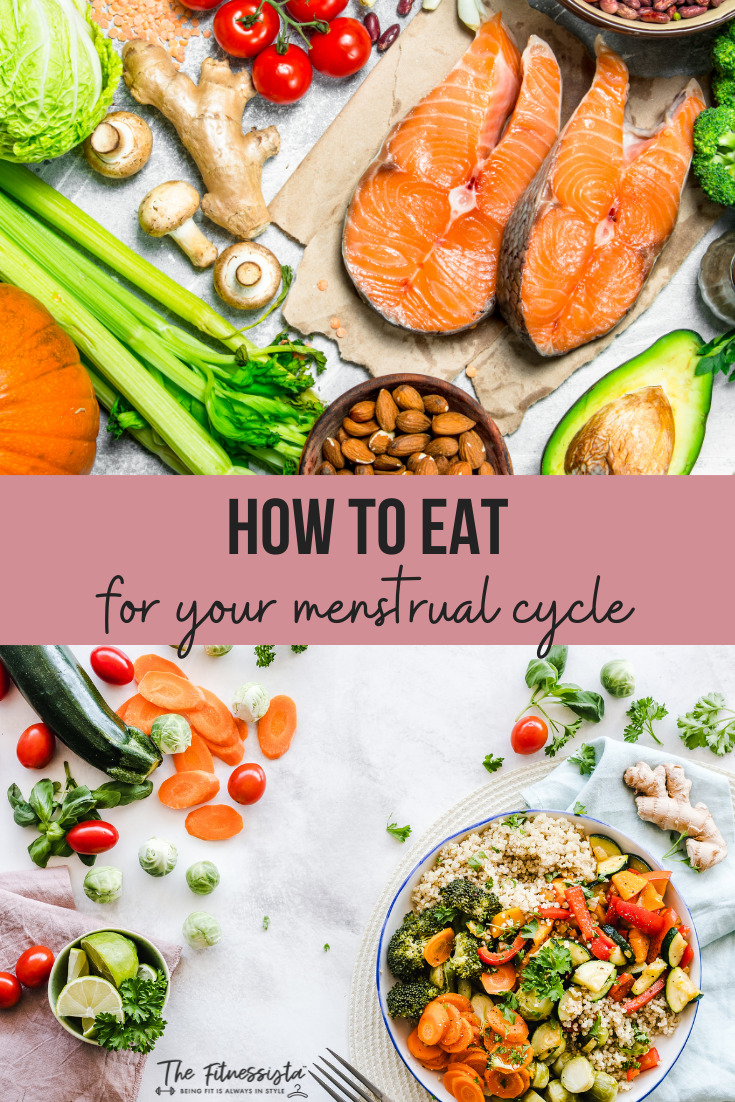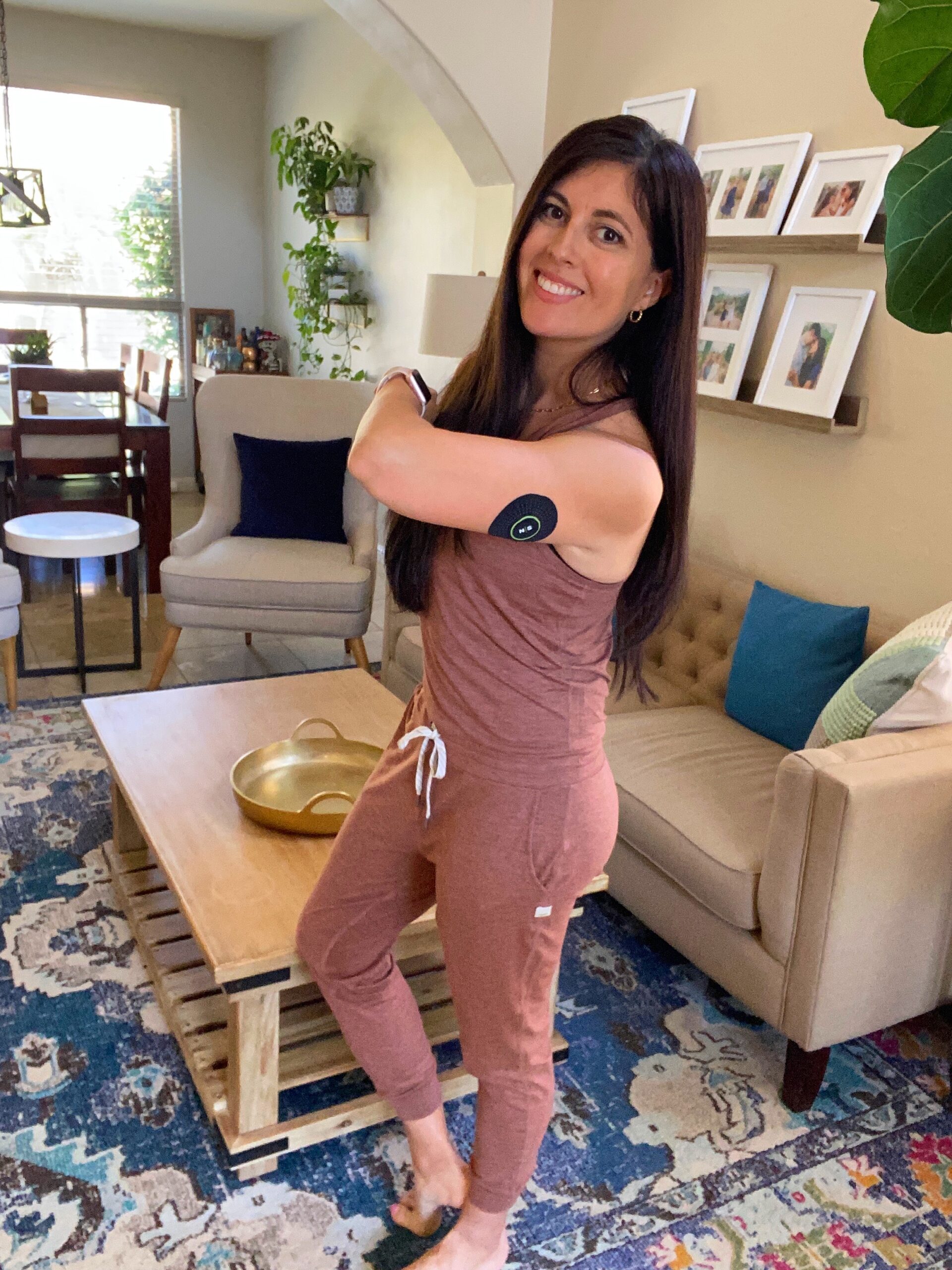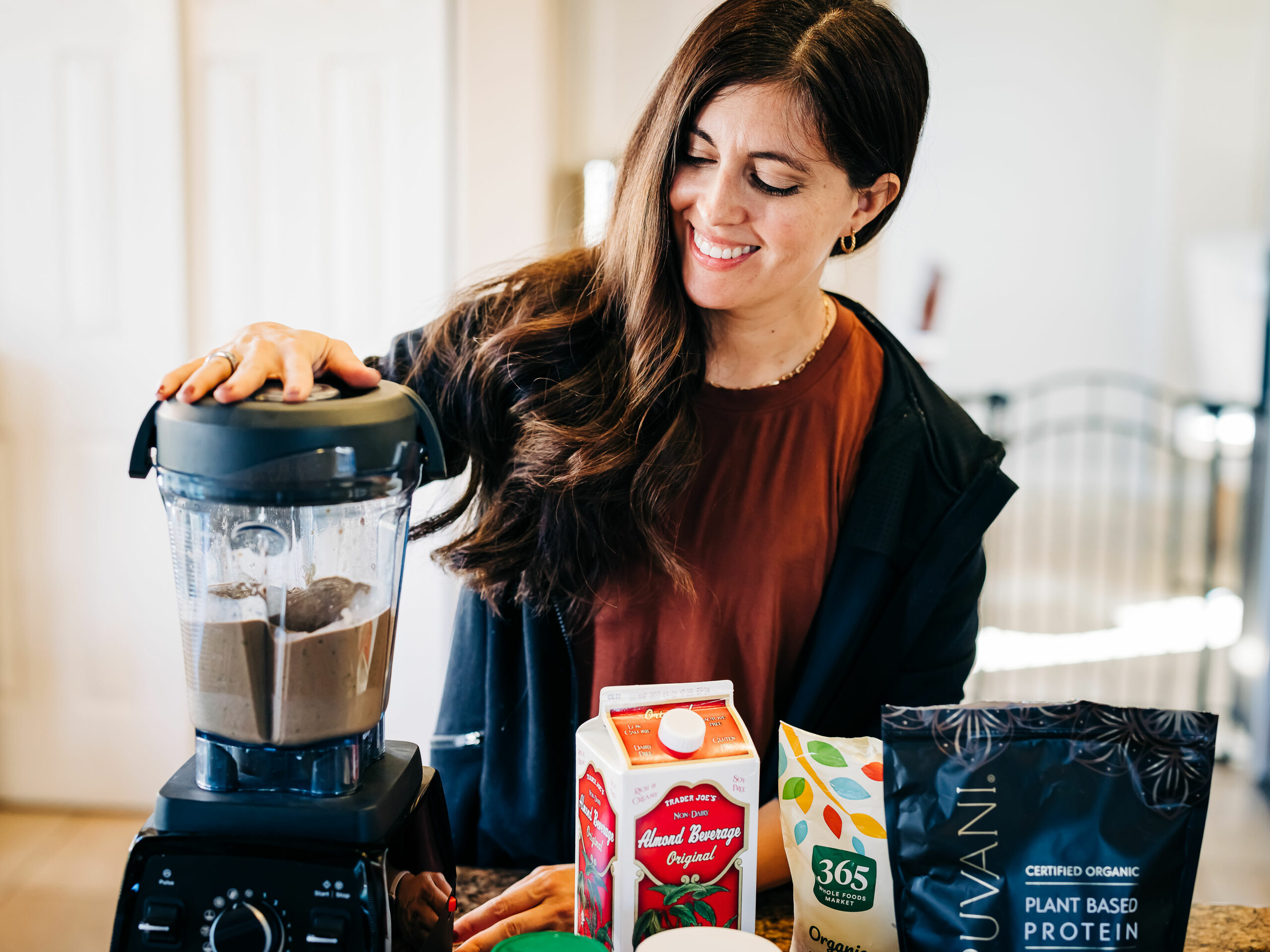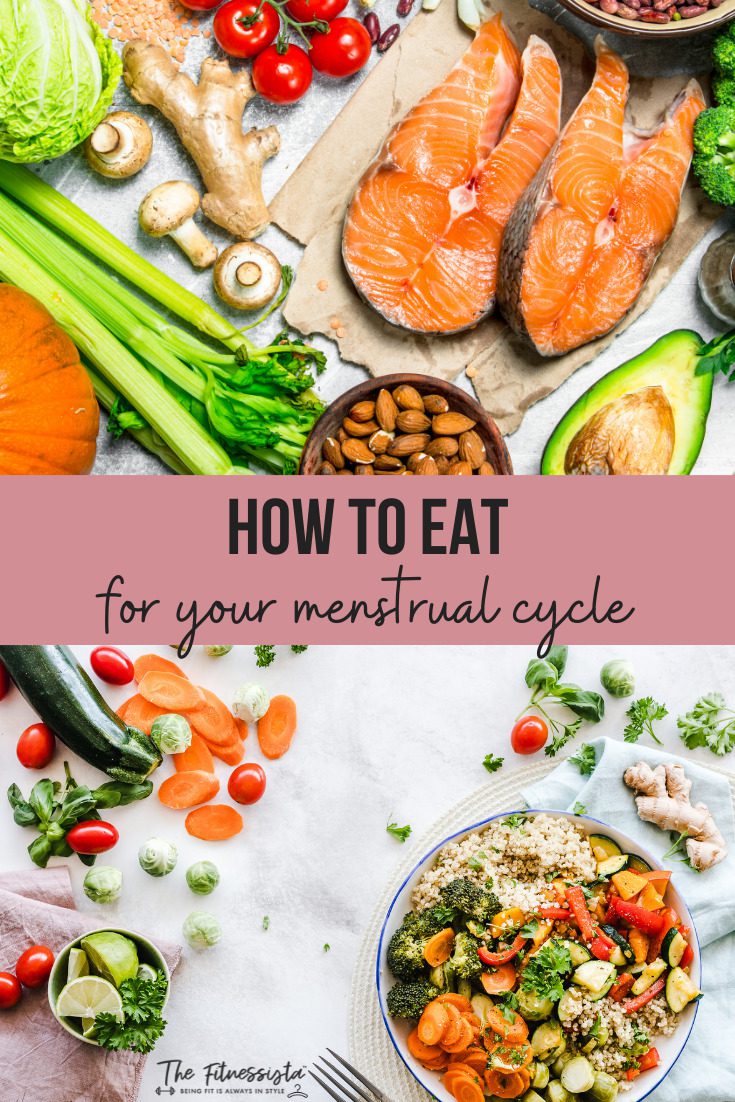Sharing tips on how to eat for your menstrual cycle and how to change up your nutrition throughout the month!
Hi friends! How’s the week going so far? I ended up catching an amaaaazing hot yoga class -it’s been way too long!- and also got a ton of chores done around the house. Today is triple 1:1 appointments and prepping for Total Body Reset. We start on Monday!! Don’t miss out.
For today’s post, I wanted to share a post from Mia all about how to change up your nutrition during your cycle. She asked me if I would be interested in a plan for my personal use, and I knew immediately that it would make an awesome blog topic. I shared a post here about how to change up your workouts during the month, and a podcast here about how productivity changes during your cycle.
Here are tons of tips on how to fuel your body as our hormones change throughout the month!

How to eat for your menstrual cycle
Week 1 Low Estrogen
Choose to eat low-carb during the week of your period.
*Remember, day 1 of your period is the first day of blood flow.
Follicular Phase– On your period, aim to focus on anti-inflammatory foods such as fatty fish like salmon & sardines or take a high quality vitamin E capsule to help balance out inflammation from oils and seeds . Look for iron-rich foods like red/dark meat, legumes and lentils. Try to pair these with vitamin C-filled foods, like fresh fruits and vegetables for maximum absorption and bioavailability. Be sure to include many magnesium rich sources such as dark chocolate, almonds and pumpkin seeds.
Note from Gina: I wore a CGM the week I started my cycle and was SHOCKED to see how high my blood glucose levels were during that 5-day span. I had to eat lower carb to stay within a healthy zone, and felt so much better. I will absolutely be doing this going forward.

During days 1-10:
May see higher than average levels of blood sugar and impaired insulin sensitivity on the first day of your period, so aim to keep carbohydrates lower
Fasting is easier and appropriate during this time.
This may be a time that you finish your last meal of the day by 4pm and not eat until you’re hungry the next day.
Advanced fasting like 24 hour fasts for metabolically-flexible individuals may be used during this time when supervised.
Meals ideas:
– Salmon on salads with pumpkin seeds
– Fish cakes with sautéed kale and bacon
– Steak with broccolini and lemon
– Dark chocolate covered almonds
– Dark chocolate covered pumpkin seeds
– Greek yogurt, berries and almonds
– Eggs, sautéed greens, grapefruit
Week 2 Estrogen Peaks
Add in healthy carbs
Estrogen spikes just before ovulation towards the middle of the menstrual cycle, around day 14. If you’re working out, keep in mind that this can cause tendons and ligaments to become more loose, which can result in injury. Estrogen crosses the blood-brain barrier and increases levels of serotonin, which can lead to feelings of lethargy and decreased motivation, so if you’re not up for your usual workouts and have a case of the “blahs,” perhaps you consider gentle activities like yoga and long walks. During this phase, progesterone and estrogen are elevated then drop, eventually causing bleeding. Since higher estrogen phase lends to more free fatty acids during activity, women may find that in this phase HIIT can feel challenging, since glycogen stores are more difficult to access and utilize.
During days 11-14:
Eat protein rich foods to help reduce physical and mental inertness
Protein can help repair tissues and speed up muscle recovery and soreness
Collagen powder may help boost muscle recovery and support connective tissues, hair and skin.
You may experience higher spikes in blood sugar during this time as well as some insulin resistance during ovulation
Focus on healthy fats and fiber to help detoxify estrogen (cruciferous vegetables like broccoli, broccoli sprouts, brussels sprouts, etc)
It is best not to fast. If you must fast, maintain 13-15 hours fasting.
Eat balanced macro meals during this time enjoying carbohydrates like potatoes, sweet potatoes, squash, rice, and legumes.
Enjoy cruciferous veggies like broccoli and cauliflower.
Week 3 Estrogen levels are elevated and progesterone peaks
Luteal Phase– During the luteal phase, hydration is important because of the high hormones. Despite noticing a decrease in thirst and increase in body temperature, it’s important to stay up on hydration during this time in order to avoid dehydration. Progesterone increases sodium excretion, so be sure to make sure you’re salting your food. During this phase you may notice an increase in bloat, which is due to water moving from the bloodstream into cells, which decreases blood volume.

During days 15 – 20:
Continue consuming healthy carbs
Electrolytes, LMNT, and minerals
Roasted potatoes with salt
Roasted vegetables Chipotle bowls
Mexican food
Week 4- Estrogen drops and progesterone peaks
During days 21-28:
– Not a great time for fasting
– Normal blood sugar levels
– Enjoy carbohydrates
Insulin sensitivity is normalized
Adequate protein is helpful
Progesterone increases your metabolic rate as it’s a “hot hormone”
Appetite might be increased as well
In the 2-3 days before your period, lean into lower carb options, this is when you can experience some higher blood sugar levels. Things like avocados, bacon, red meat, eggs and non starchy vegetables are great to combat the higher blood sugar levels.
Vitamin E is anti-inflammatory and may help with any PMS symptoms as you approach your period.
Adding transdermal magnesium, magnesium glycinate or magnesium flakes in a foot soak or bath can help with PMS symptoms.
So tell me, friends: do you change up your nutrition throughout your cycle?
If you’re looking for a reset for health and nutrition habits, especially as we head into summer, join us for Total Body Reset! All of the details are here. We’d love to see you in the group, especially if you’re looking for higher energy and happy, balanced hormones. Enrollment closes this weekend and we won’t be doing this again until fall.
xoxo
Gina
More:
Working out during your cycle
Seed cycling
Balancing your blood sugar and making healthy swaps
Source by fitnessista.com


